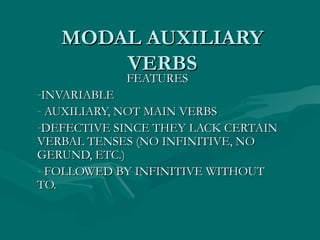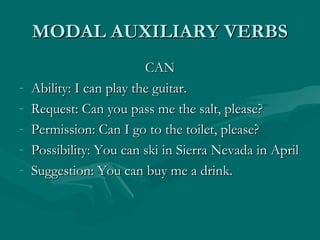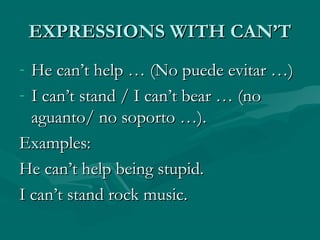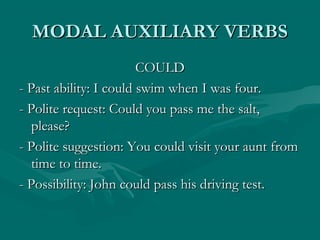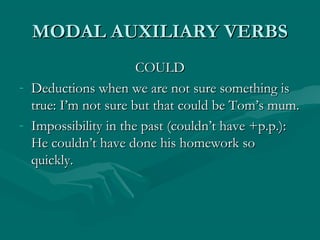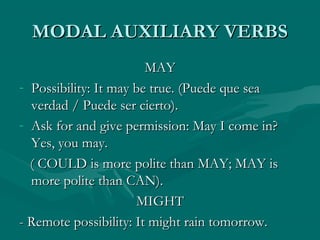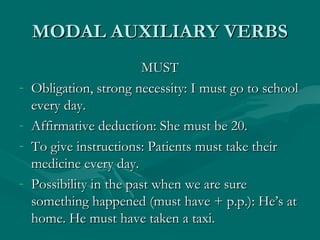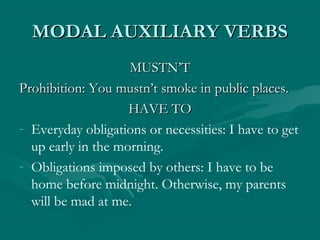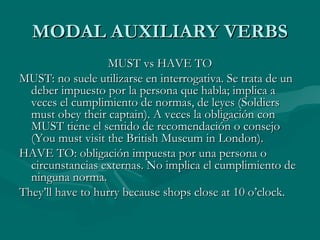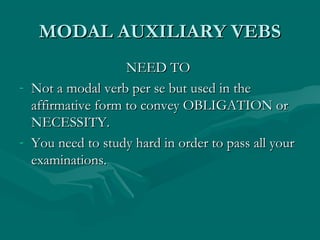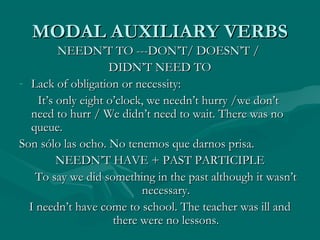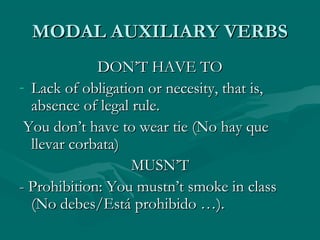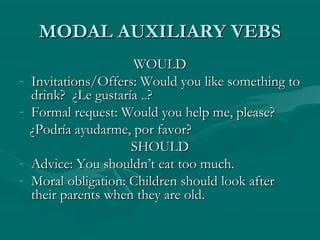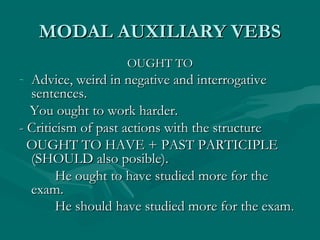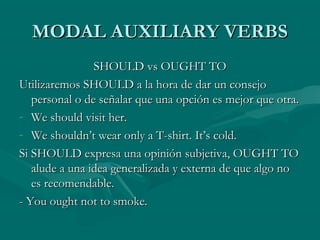This document provides information on modal auxiliary verbs in English. It discusses the features of modal verbs, including that they are invariable and defective since they lack certain verb tenses. It then defines and provides examples of usage for various modal verbs, including can, can't, could, be able to, may, might, must, mustn't, have to, need to, don't have to, mustn't, would, should, and ought to. It compares the uses of must and have to as well as should and ought to.
